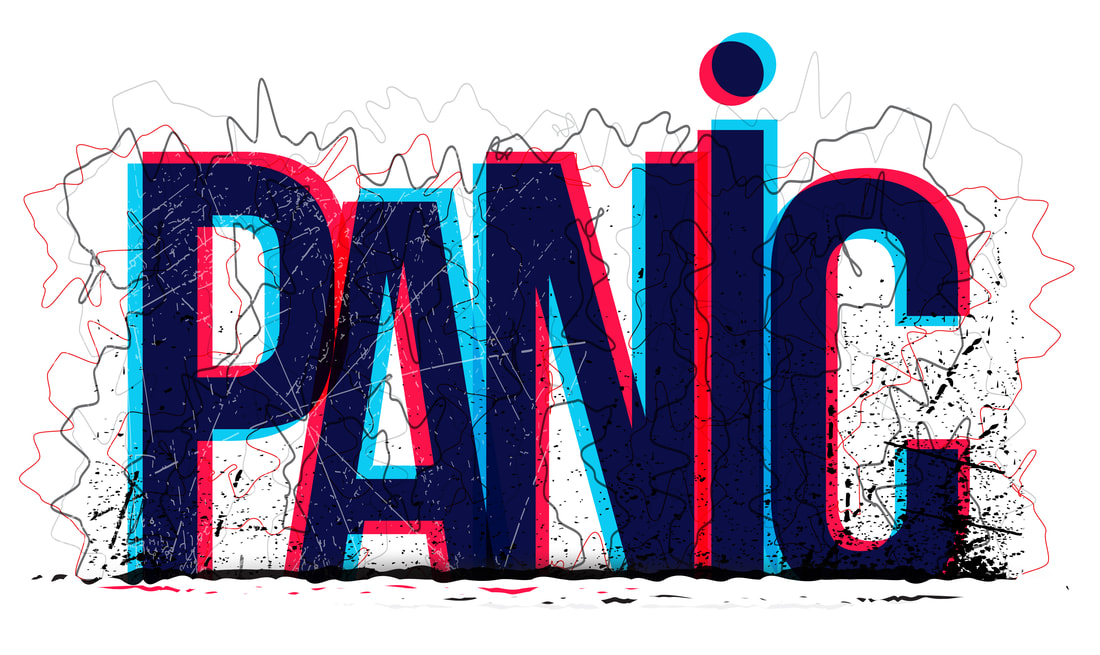In the previous article of this Exploring Mental Health series, we explored mindfulness – something that would be helpful for managing this month’s topic: panic attacks. Find out what panic attacks are, when they happen and what they feel like. And discover how to manage a panic attack if you experience one.
What is a panic attack?
Panic attacks are intense moments of anxiety that can occur suddenly, usually with accompanying physical symptoms.
During a panic attack, your body is in ‘fight or flight’ mode. ‘Fight or flight’ is your body’s automatic response to danger, a response that evolved in humans as a way of protecting us from harm. When we feel under threat, our bodies react by releasing hormones that make us more alert and prepare us to either fight or run. This means we experience physical changes in our body that are designed to increase energy levels and strength so we can survive the threat.
With panic attacks, your body’s ‘fight or flight’ response can be triggered at unpredictable moments, when there is no apparent danger. (Unlike our prehistoric ancestors, our ‘threats’ tend to be stressors such as deadlines and traffic queues, rather than life-threatening situations.) This exaggerated response can be frightening to experience.
When do panic attacks happen?
Panic attacks can happen without warning. This can be at times when you’re anxious or stressed, or even when you feel relaxed - sometimes even when you’re asleep.
Events that trigger feelings of stress or fear may lead to a panic attack, as can experiences such as bereavement, trauma, ill health, redundancy or divorce. Life transitions such as getting married, having a baby or moving house can also be triggers. Panic attacks may also be a side effect of some prescribed medications or drugs, as well as the use of alcohol, nicotine or caffeine.
You may experience only a couple of panic attacks in your lifetime, or you may experience them more regularly, Recurrent panic attacks can occur as a result of anxiety or depression, or be triggered by a particular place or situation, particularly if it has triggered a panic attack before. Regular, recurrent panic attacks may be a sign of panic disorder, which you can read more about in ‘When to seek help’ below.
What do panic attacks feel like?
Panic attacks typically last between 5-30 minutes, with symptoms at their worst within the first 10 minutes. During this time, you may experience any number of the following symptoms, at varying levels of intensity:
- Struggling to breathe or hyperventilation
- Irregular, pounding or racing heartbeat
- Chest pain or discomfort
- Trembling or shaking
- Sweating
- Feeling of choking or suffocation
- Nausea or upset stomach
- Feeling dizzy, light-headed or faint
- Numbness or tingling sensations
- Feeling very hot or very cold
- Feeling disconnected from your mind, body or surroundings
How to manage a panic attack
During a panic attack it’s important to remember:
- There’s nothing seriously physically wrong
- You’re not in any danger
- You won’t come to harm
- You’re not going to die
- It will pass
Focus on slowing down your breathing, and taking deep, regular breaths. This will slow down your heart rate and begin to reduce the physical symptoms you’re experiencing.
Concentrate on counting to five as you breathe in through your nose, and again as you breathe out through your mouth – this will provide you with something to focus on.
It can also be helpful to focus your thoughts on a particular image as you do this, such as a flower or a favourite place.
Other ways to help manage a panic attack are:
- Splash water on your face (to reduce your heart rate)[i]
- Massage your scalp (to send blood circulation to the brain)
- Shake out your muscles (to help reduce tension and fear)
- Repeat a phrase, such as ‘I’m safe and this will pass’ (to remind yourself you’re in control)
As difficult as it might seem, try not to fight the panic feelings as this can leave you overwhelmed, and increase the intensity and length of the panic attack. Accepting what’s happening, and sitting with it until it passes, can help to reduce the scariness of the attack and minimise the length of time it lasts. Repeatedly doing this can also reduce the number of panic attacks you experience.
How to reduce the chances of having a panic attack
You can help reduce or prevent panic attacks by:
- Learning about panic and anxiety so you understand what’s happening when you experience it
- Avoiding or reducing smoking, alcohol and caffeine
- Exercising regularly to help manage stress and reduce anxiety levels
- Practicing breathing exercises so you can calm yourself more quickly when you experience anxiety and panic
- Practicing relaxation techniques, such as mindfulness, to reduce tension
- Talking to family and friends to increase support and help others understand how you’re feeling
When to seek help
If you have panic attacks that occur repeatedly, or you’re constantly anxious about having a panic attack, you may have panic disorder. Panic disorder can affect your behaviour, mood and mental wellbeing, but it is treatable. If you’re concerned you may be experiencing it, speak to your GP. They’ll be able to give a diagnosis and suggest treatment options, which may be one or a combination of medication and therapy.
If you’re experiencing anxiety and having panic attacks, therapy can help. Take a look at how to get in touch to make an appointment.
[i] Everyday Health, 10 Ways To Stop A Panic Attack, Available: https://www.everydayhealth.com/columns/therese-borchard-sanity-break/ways-stop-panic-attack/


 RSS Feed
RSS Feed